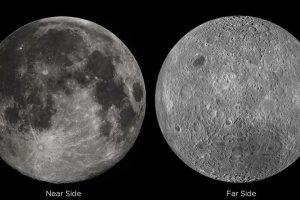
Hamaad Khan, UK
Wispy hair, sunken flesh, brittle bones; as we age, we are marked by the breakdown of our biology, stalked by a frailty that follows us until our end. Ageing is considered an inevitable story of decay and despair, but scientists are now striving to push this frailty away from the lived human experience, far outside the membrane of our biology.
We are in the age of ageing. In 2018, for the first time in human history, there were more people over the age of 64 than there were children under 5. According to the WHO, by 2030, 1 in 6 people will be aged 60 years or over. The crossing threads of larger populations with longer life expectancies, and the increase in age-related diseases, is forming a worrying pattern — more people are suffering more diseases in their old age for a longer period of time. But can we stop ageing and prevent its weaknesses? Is ageing itself treatable?
Molecular Underpinnings of Anti-Ageing
In 1939, researchers found that restricting the caloric intake of rodents increased their lifespan. This research sparked the idea that ageing is a plastic phenomenon; it can be tweaked, tampered and tinkered with, perhaps even reversed. What followed was decades of research dedicated to identifying the biological markers of ageing. From shortened telomeres (genetic code which protects against DNA damage), slower cell divisions, and chronic inflammation, scientists have found many cellular changes associated with ageing. The ageing process, it seems, can be reversed and remedied like any other biological process.
For example, the enzyme telomerase can prevent a person’s telomeres from shrinking, increasing the lifespan of cells to continue to divide. Stem cell therapies may help repair damaged cells and organs. Injecting Yamanaka factors can induce pluripotency, allowing specialised cells to become almost embryonic-like and develop into other cells — useful for the repair and maintenance of aged organs. A dose of Rapamycin can clean up tired senescent cells and revitalise the immune system. But does this new knowledge of “age annihilation” radically change what it means to be human? Can all age-related weakness be spliced out for eternal youthful bliss?
Ageing in the Holy Qur’an
The Holy Quran states that weakness in old age is not a scientific problem to overcome, but a design in the fabric of our being — we are woven in twill and torsades of weakness.
اَللّٰہُ الَّذِیۡ خَلَقَکُمۡ مِّنۡ ضُعۡفٍ ثُمَّ جَعَلَ مِنۡۢ بَعۡدِ ضُعۡفٍ قُوَّۃً ثُمَّ جَعَلَ مِنۡۢ بَعۡدِ قُوَّۃٍ ضُعۡفًا وَّ شَیۡبَۃً ؕ یَخۡلُقُ مَا یَشَآءُ ۚ وَ ھُوَ الۡعَلِیۡمُ الۡقَدِیۡرُ
It is Allah Who created you in a state of weakness, and after weakness gave you strength; then, after strength, caused weakness and old age. He creates what He pleases. He is the All-knowing, the All-Powerful. (30:55)
وَ مَنۡ نُّعَمِّرۡہُ نُنَکِّسۡہُ فِی الۡخَلۡقِ ؕ اَفَلَا یَعۡقِلُوۡنَ
And him whom We grant long life—We revert him to a weak condition of creation. Will they not then understand? (36:69)
This is our end point. No matter how much we yearn for science to save us—to refresh, revive, and renew—we are bound by the fallibility of flesh. Hair begins to fall, teeth and bones break, dementia settles in, cancer grows out; our physical bodies will always return to a state of weakness. Ultimately, death will overtake us all.
کُلُّ نَفۡسٍ ذَآئِقَۃُ الۡمَوۡتِ ثُمَّ اِلَیۡنَاتُرۡجَعُوۡنَ
Every soul shall taste of death; then to Us shall you be brought back. (29:58)

However, the Qur’an does speak about what the possibility of an extended life would mean:
وَ لَتَجِدَنَّھُمۡ اَحۡرَصَ النَّاسِ عَلٰی حَیٰوۃٍ ۚۛ وَ مِنَ الَّذِیۡنَ اَشۡرَکُوۡا ۚۛ یَوَدُّ اَحَدُھُمۡ لَوۡ یُعَمَّرُ اَلۡفَ سَنَۃٍ ۚ وَ مَاھُوَ بِمُزَحۡزِحِہٖ مِنَ الۡعَذَابِ اَنۡ یُّعَمَّرَ ؕ وَ اللّٰہُ بَصِیۡرٌۢ بِمَایَعۡمَلُوۡنَ
And thou shalt surely find them, of all people, the most covetous of life, even more than those who set up equals with God. Every one of them wishes that he may be granted a life of a thousand years, but his being granted such life shall not keep him away from the punishment; and Allah sees all that they do. (2:97)
Even a long life will eventually come to an end, the Qur’an explains. A life of a thousand years is still not an eternal one that keeps us away from God’s punishment. Thus, with the end in mind, the focus shifts beyond the ailing body, which inevitably perishes, and into the enduring mind and spirit. It’s not wrinkles and weakness that matter in the end, but our piety.
The prophets of God are an example, carrying out their divinely ordained duties in spite of weakness and age. Even in his final days when he was not as physically strong, the Holy Prophet Muhammad (sa) asked to be helped to the mosque, taking the support of people’s shoulders as his feet dragged behind him. Abraham, Moses, and Jesus too, peace be on them all, lived to old age, facing trials of flood and fire, but never did they yearn to be ageless and escape their feeble mortality. They knew that what we lose with physical weakness, we can gain in spiritual strength.
Efforts to change ageing from one of misery and death to health and vitality is a noble one. To reduce suffering from disease should be welcomed. However, taken to its extreme, anti-ageing research desires to writhe free from the tyranny of disease and mortality altogether, searching for elixirs that promise an ageless existence. But this does not deliver us from all our suffering. To live forever, caged into our biology, becomes the greatest weakness of all.
Islamic principles are rooted in the idea that we are more than flesh and bone, we carry a soul—survived by our character, morals, and actions. Thus, true strength is not forged within our youthful physical bodies, but found within the spiritual evolution of our soul. It’s when we transcend our baser desires to seek out the Higher Power, that we can find in moments of physical weakness, an everlasting spiritual strength.
About the Author: Hamaad Khan is studying for his Masters in Global Health and Development at University College London after graduating from King’s College London with an ungraduate degree in Neuroscience.




Add Comment